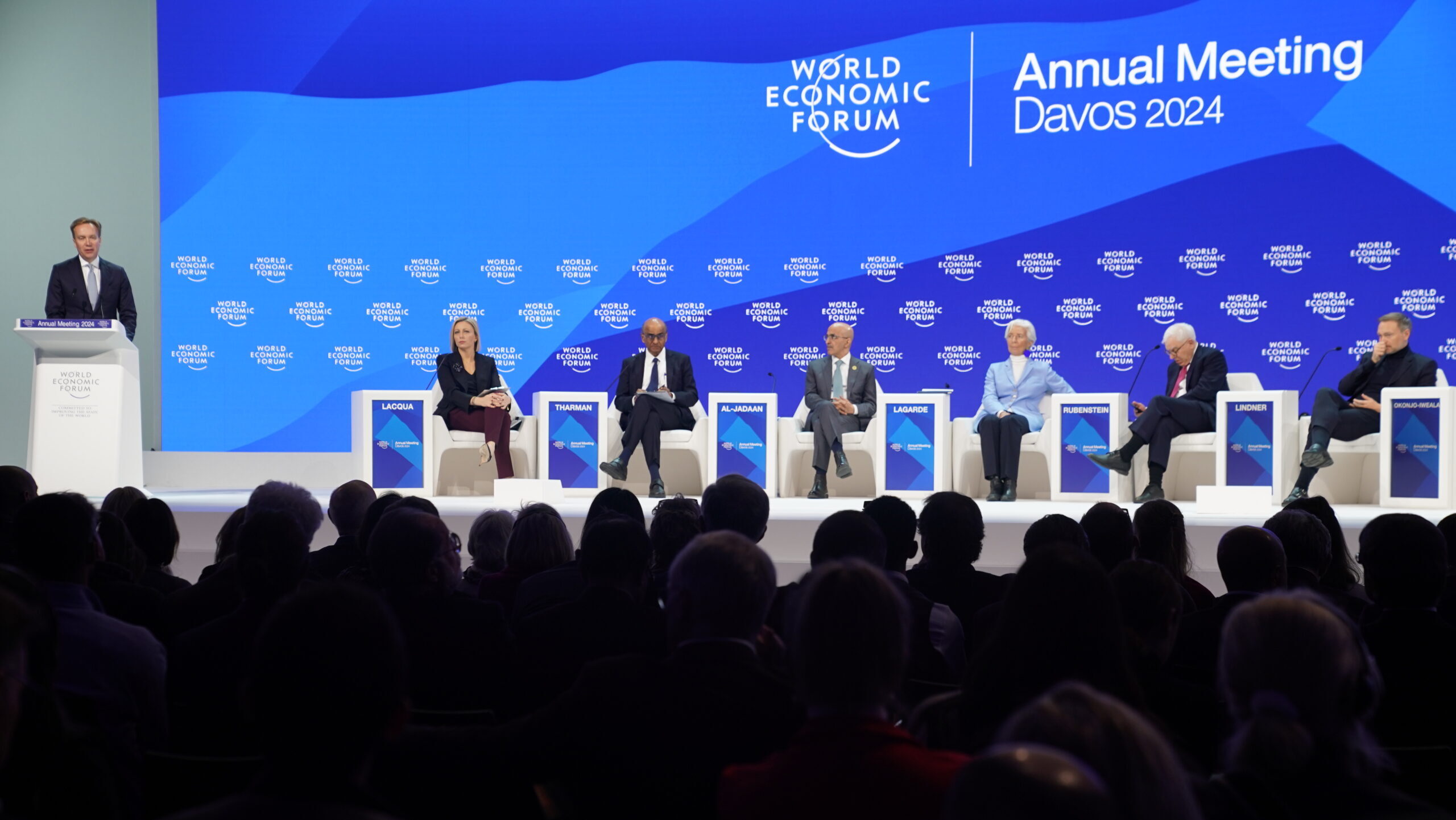Qatar Implies That Red Sea Insecurity Can Only Be Fixed by Gaza Cease-Fire
Despite the disruption of LNG transit to Europe, the continent does not face energy insecurity threats
Addressing the Annual Meeting of the World Economic Forum in Davos, Qatar’s Prime Minister, Sheikh Mohammed bin Abdulrahman Al Thani, said on Tuesday that the American and British attacks on the Houthis can only worsen the security situation in the Red Sea and that the real solution to the security issues there is ceasing the Israel-Hamas war in Gaza.
According to Al Thani, the Western military intervention will neither bring an end to nor contain the Houthi attacks but will only escalate them, and the sole solution is to defuse the conflict in Gaza.
“We need to address the central issue, which is Gaza, in order to get everything else defused…if we are just focusing on the symptoms and not treating the real issues, [solutions] will be temporary,” said Al Thani.
Qatar is one of the world’s largest liquefied natural gas (LNG) exporters, supplying large amounts of it to European countries, mainly Germany. The Gulf country supplies LNG to Europe in vessels that usually cross the Suez Canal to reach Europe much faster, saving about two weeks of travel. Shortly after the Israel-Hamas war began on October 7, the Iran-backed Yemeni militia, the Houthis, attacked several shipping vessels sailing close to its coasts of the Red Sea on their way to cross the Suez Canal. Last weekend, the US and the UK started striking Houthi targets in response.
Since the weekend, some vessels shipping Qatar’s LNG have either stopped or deviated to the Cape of Good Hope in South Africa, making the travel significantly longer.
Dr. Ramu C.M., a senior geopolitical analyst at APAC Assistance with expertise in energy and international politics, told The Media Line that the Qatari prime minister’s statements in Davos aligned with the country’s foreign policy strategy.
“Qatar has a policy of not actively antagonizing any militant or terror group that is active across the Middle East. It naturally does not want its maritime gas exports to be a target of the Houthi ire,” he said.
He noted that as opposed to other neighboring countries, Doha has maintained good relations with political Islam. “The leaders of Qatar, not only for pragmatic reasons but also due to their lack of adverse experiences, have been content to support movements associated with political Islam, including Hamas and the Muslim Brotherhood,” added C.M.
Cyril Widdershoven, a geopolitical and international oil-gas market specialist, said that this support allows Doha to place itself in a unique geopolitical position in both the Islamic world and on a global level.
“Qatar, or at least large parts of the Qatari power circles, are behind the Hamas-Hezbollah-Iran-Houthi crowds, as they see a geopolitical opportunity to be the main interlocutor between them, Israel and the West,” he told The Media Line.
In terms of the potential threat that the halt of the passage of Qatari LNG through the Red Sea could pose to Europe’s energy security, both analysts agree that, currently, it is not so significant.
Widdershoven explained that, at present, Qatari LNG represents less than 11% of the total supply to Europe. He noted that this is due to the large American LNG supply as well as a lower gas demand in Europe.
C.M. pointed out that since the Russia-Ukraine war started, Europe has diversified its energy supplies, lowering the chances of jeopardizing its energy security in case of a disruption such as the current one. Europe currently gets piped gas from Norway, Russia, though in reduced volumes through the Ukraine transit route, Algeria, the UK, and Azerbaijan. It also sources LNG from the US, Russia, Qatar, Algeria, and Norway, he explained.
This is why he believes that interruptions to Qatari gas imports would not be very disruptive beyond immediate price impacts on the European gas trading hubs. “This also is contingent on cold blasts that could suddenly trigger a demand surge for gas for residential heating,” C.M. added.
However, noted C.M., the security situation in the Red Sea may have some effects on the global prices of oil and gas.
First, he noted that the war insurance premiums and disruptions to global supply chains and shipping lines are likely to increase further. Second, he added that the rerouting of the cargo ships through the Cape of Good Hope is expected to extend transit times, increase transportation costs, and strain global supply chains.
“The financial impact on shipping lines, cargo owners, marine insurers, and reinsurers could be severe,” he warned.
That being said, C.M. asserted that despite tensions in the Red Sea, oil prices have so far been less impacted and have remained somewhat stable.
He attributed this to several factors. Among them, he noted is that overall production has not been impacted, and alternative routes have been explored via the Cape of Good Hope. He also said that the stronger dollar is counteracting the disruptions in the Red Sea. This is why oil traders seem unconvinced that a major supply disruption is imminent, C.M. concluded.


